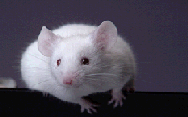 Jos van Geffen --
Home |
Site Map |
Contact Me
Jos van Geffen --
Home |
Site Map |
Contact Me
Glenda Cooper -- The Independent, 12 December 1996
Good character, discipline and commitment were what the Victorians thought
sports gave you. Permanent chilblains, inferiority complexes and bad
behaviour are what they in fact achieve.
A paper in today's British Journal of Sports Medicine disproves the commonly held belief that doing sport prevents teenagers from turning into juvenile delinquents.
Rather, it seems, the reverse is true. Boys who do a lot of sport at the age of 15 are almost twice as likely to be delinquent by the age of 18 than those who don't, and girls are even more likely to go off the rails.
The researchers claim that it is more true of individual than of team sports, I disagree, as anyone would who has stood on a freeezing cold netball court in a skimpy gym skirt, biting back tears because you and the class fatty have been picked last again. Reader, giving up sport as soon as humanly poissible is the only reason I now consider myself to be a useful member of society. Had I not, I would no doubt be spending my time setting fire to buildings or extorting lunch money from small children.
Sport is responsible for all the nasty, mean, delinquent facets of the avergae schoolgirl's character. It first imbued me with an unjustified prejudice agianst long-limbed girls with blond manes who effortlessly made the tennis, hockey and athletics teams as well as being voted form captain on the strength of these achievements.
It taught me to dissimulate - faking another sprained ankle and having to retire to the showers early. It taught me to lie (my period came round approximately every 10 days), to cheat (Round the field five times? Run very sowly and you can get away with going round twice), and to value sloth above all other deadly sins.
I think the happiest day of my sports career was when a particularly unsympathetic teacher sent us losers out to practise archery in the cold. Some fellow incompetent managed for the first time to execute a perfect shot - through the staffroom window above. (Sadly there were no fatal injuries, but I still nominated her for form captain.)
Giving up sport in the sixth form freed me from all this. I felt I could even speak civilly to games teachers when they no longer had the power to make me jump pointslessly over a metal rail. And I could occupy my leisure time in useful pursuits such as helping old people, reading, and eating chocolate, instead of subjecting myself to ritual humiliation in the name of bonding, character-building and stiff upper lips.
The researchers who produced the report note that in the mid-19th century sport became a form of social control in public schools and "was considered a substitute foir poaching, vandalism, bullying and drunkenness, which had previously been the main activities during boys' leisure time". Look at the public schoolboys who run our country today. Don't you feel that poaching must have been a morally uplifting pursuit in comparison?
Something else that can be said against sports ...
 A Dutch biologist, Midas Dekkers, said in a tv program from 1994/95
that the heart of a mammal beats for at most some 1,500 million
times and then its over, no matter which mammal you take: from mice to
eliphants, this is all the beats there are in a lifetime. *)
A Dutch biologist, Midas Dekkers, said in a tv program from 1994/95
that the heart of a mammal beats for at most some 1,500 million
times and then its over, no matter which mammal you take: from mice to
eliphants, this is all the beats there are in a lifetime. *)
Hence, the best thing to do for a long life is to avoid doing anything that makes your heart beat faster, such as running around in circles and other sports ...
Whether this is true or not, I do not know, but it does not make sport any
more appealing to me ...
<=== Back to my home page.
 Jos van Geffen --
Home |
Site Map |
Contact Me
Jos van Geffen --
Home |
Site Map |
Contact Me